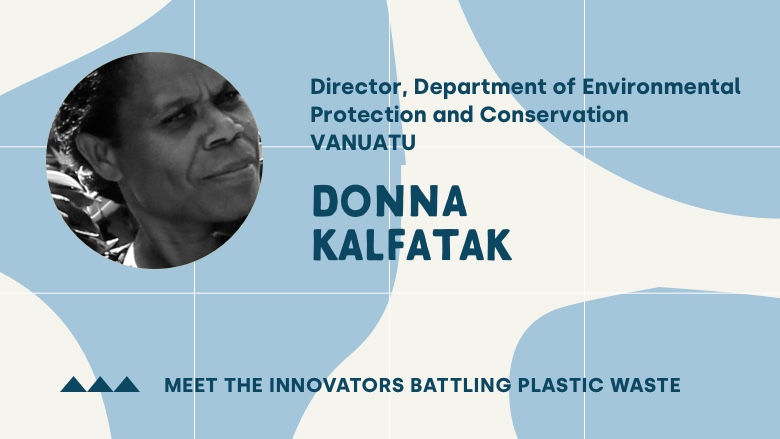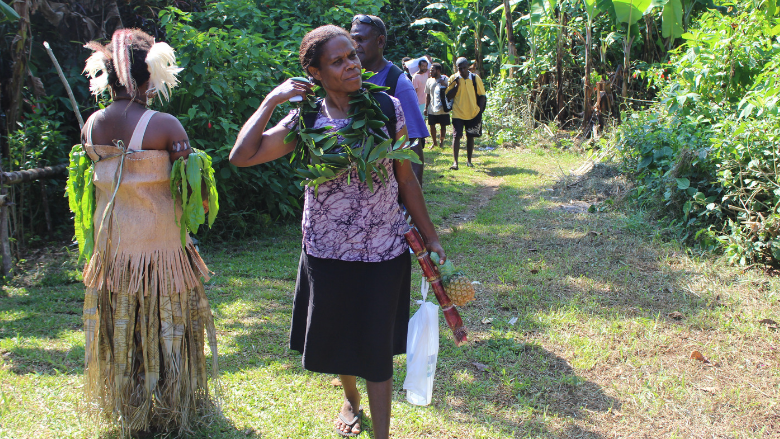Donna Kalfatak is the Director of Vanuatu’s Department of Environmental Protection and Conservation. Vanuatu has a world-leading single use plastic ban that came into effect in January 2018, banning non-biodegradable plastic, including bags and polystyrene containers. Now, Donna, who has a background in conservation, is working towards an expansion of the ban including plastic cutlery and grocery packaging. But Vanuatu can not do it on its own, she says.
I’m the Director of Vanuatu’s Department of Environmental Protection and Conservation. I’ve been in this role since February 2019, and I previously worked in biodiversity and conservation.
As a director I have been working with our waste management team, the Ministry of Climate Change and the Ministry of Foreign Affairs on the development and implementation of the second phase of Vanuatu’s plastic ban and the regulations around it.
When did you first begin to focus on environmental issues?
I was raised in the islands. As a child I would go to the forest and gardens and I would go to the sea to fish and swim. I’m used to interacting and being connected to nature, so I went on to study and learn about our connection to the environment and the importance of biology, ecology and biodiversity.
Now I’m an environmentalist by profession. Environmentalism was my area of study at university and I have been working in the area for a long time. I have always wanted to protect the biodiversity and ecosystems of Vanuatu, and plastic and waste has one of the largest impacts on this. I thought: ‘we can work on the conservation of biodiversity and ecosystems but we need to address the source to make a sustainable change.’
How challenging has it been to implement the first phase of the nation-wide plastic ban?
When it first came out, there were comments from people who didn’t want it. But we kept moving forward. We had real challenges with ending single use plastics for shopping, and the public had some serious issues with this.
But in the end, the ban was implemented and now people appreciate the clean environment. People are used to it, and shops are also comfortable with not providing plastic. Now people are more focused on looking at using alternatives that are better for the environment.



